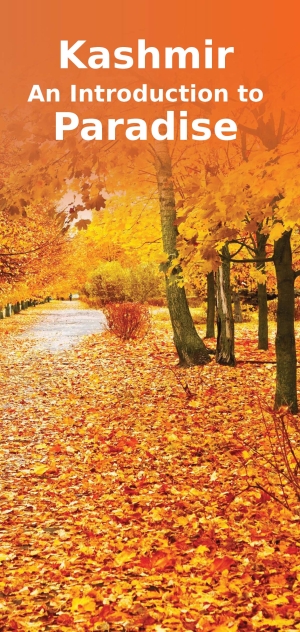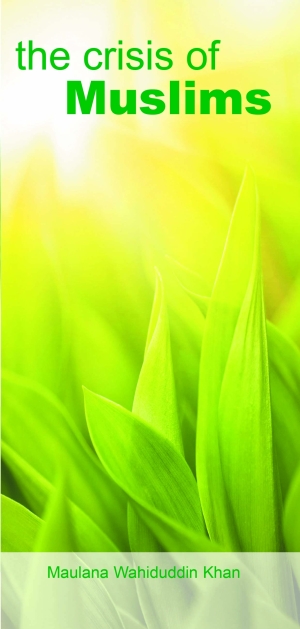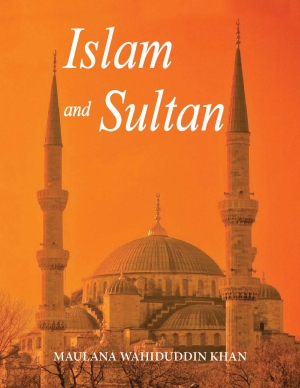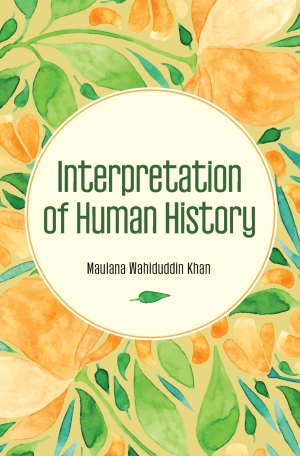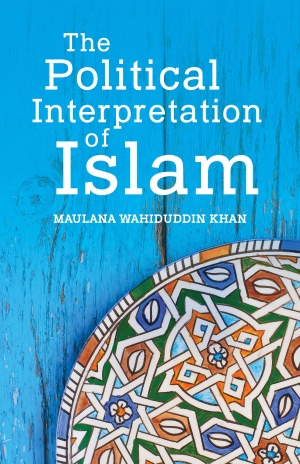Islam is a religion of peace. Present-day Muslim militancy derives neither from the Quran nor the Sunnah. It finds its roots in the political interpretation of Islam, which is a gross misinterpretation of Islamic scriptures. Radicalizing Muslims worldwide, the political ideology misinterpreted Islam as a religion that sanctions violence. Gaining the support of certain Muslims and the media: television, the internet, and social media, the ideology has radicalised Muslims, especially the youth, and is leading to strife and conflicts in Muslim communities.
Wrongly taking legitimacy from this ideology, certain Muslims are resorting to violence. This phenomenon pertains to Muslim practices and has nothing to do with Islamic teachings. When we differentiate between Islam as given in its sources and Muslim practices, we will understand that Islam is a great blessing from God for humanity. The material prepared by Maulana Wahiduddin Khan serves as a counter ideology to the political interpretation of Islam. It de-radicalises Muslims by presenting them with the correct interpretation of Islam as a religion of following and not enforcement. A case in point is that of Kashmir. After long efforts, thousands of minds were re-engineered away from violent militancy towards peaceful activism in the fields of education and dawah. Today, militancy has virtually ceased in the region. Thinking minds have left extremism. What remains are mere emotional outbursts and an outer shell of the original militancy. This material needs to disseminate globally to root out militancy from the world.
Featured Articles
Featured Videos
FAQs
According to a hadith report contained in the Sunan Abu Dawud, the Prophet advised the Muslims not to adopt the path of violence, or else, he said, their conditions would become even more severe (Sunan Abu Dawud, Hadith No. 4904). The veracity of this statement is clearly evident today in every Muslim country where people have adopted violence to attain their objectives. This has happened in Kashmir, too.
The culture of violence that has gripped Kashmir has had no beneficial consequence at all. On the contrary, the destruction that it caused has been so enormous as to be simply indescribable. It has devastated Kashmir’s economy and educational system. It has led to the death of over a hundred thousand people, with many more being injured and crippled for life. It has played havoc with moral values. The Kashmiriyat in whose name this militant movement was launched was itself destroyed. This culture of violence forced huge numbers of capable and highly educated Kashmiris to leave Kashmir and shift elsewhere. Kashmir’s tourist industry, which played a major role in the state’s economy, was decimated. In short, this movement, launched in the name of the Kashmiri people, produced no benefit whatsoever for the common Kashmiris, although it has certainly benefitted the self-styled leaders of Kashmir.
The Quran (57:23) tells us in clear words: “ […] You may not grieve for what has escaped you […]
This Quranic verse tells us of a law of Nature that God has established in this world. According to this law, every person and every community has to experience some form of loss, at some time or the other. No person or community is exempted from this law of Nature, for this is part of God’s creation plan. In other words, this is God’s law, and so it is impossible for anyone to change it.
But, along with this, there is another law of Nature—that in this world, opportunities never cease. Here, whenever one opportunity is lost, at once another one emerges. Hence, wisdom demands that we should forget our lost opportunities and, instead, should make use of the new ones that are available to us. This is precisely what the Kashmiris should do today.
Exploitative leaders thrive on fanning people’s sense of being denied or deprived. On the other hand, true leaders lead movements that are based on achievements rather than denial or deprivation. They point out to people openly-available opportunities, not closed doors, and in this way, help chart a new future for their people.
Source: Peace in Kashmir
Building a peaceful society requires the re-engineering of the mind. This task can be carried out only through education—more through informal education than formal education. By informal education, I mean gaining knowledge through the media, literature, seminars and conferences, dialogue and discussion, and so on.
Here, I am not just theorizing about peace: I have experimented with it in practice. The venue of this experiment was Kashmir. I have been working towards inculcating peaceful thinking among Kashmiris since 1968, and I am still continuing with my efforts. There has been a sea change as a result of this movement, and now, in almost every house in Kashmir, the peace-promoting literature of our mission is read.
In 2011 we organized a meeting of those Kashmiris who are acquainted with our ideas. On this occasion, someone representing a group of Kashmiris said in the course of conversation: ‘We have traveled a long way from October 1989 to October 2011. Formerly, we used to throw stones at the Indian army. Now, we present them with literature about peace.’
Kashmir, which after 1947 was continually engaged in militancy, has now almost become a peaceful state. If there is any news of attack or violence from Kashmir, it is not due to the local Kashmiris but is the result rather of a proxy war conducted from outside.
The above example of bringing about ‘Peace through Education’ can be experienced everywhere. The most effective way of bringing about peace is only one—and that is, to educate people’s minds along peaceful lines.
The best way to bring about change in society is through education. In the pre-printing press age books were not available. So it was not possible to educate people on a large scale—war is a remnant of that ancient age. In those times people tried to bring about change through force, and this led to war.
Now we are living in the age of the printing press in which books exist in abundance. It is therefore possible to bring about a change in society through mass education. Those who are engaged in war for the sake of reform only show that they are unaware of this fact. If they realized this, they would throw away their guns and concentrate on education.
Source: The Age of Peace
I give here an example of how we have been able to re-engineer the minds of people on peaceful lines. In the course of a conversation I had with a Kashmiri Muslim, he said: “We have travelled a long way from October 1989 to October 2011. Formerly, we used to throw stones at the soldiers. Now, we present them with the Quran.” These words tell us of the new revolution commencing in Kashmir. It is a sign of a new beginning. When a healthy process sets in in history, it goes on uninterruptedly until it reaches its destination.
The words of the Kashmiri Muslim denote that earlier, the Muslims in the valley were living in a state of unawareness. Now they have learned to live in a state of awareness. Kashmiri Muslims at first regarded others as their rivals. Now they have come to regard them as madu. The Kashmiri Muslims never used to stop short of violence, but now they have discovered the secret of living in peace. Having adopted a culture of violence earlier, the Kashmiri Muslims have now decided to follow the culture of peace. This new decision by the Muslims of Kashmir is the beginning of a new phase for Kashmir. It is the declaration of the dawn of a bright morning following upon a dark night.
Source: The Dawn Over Kashmir
Under the influence of certain thinkers who have interpreted Islam in political terms, a number of Muslims are obsessed with the politicized ideology of Islam. They have come to believe in the concept of establishing an Islamic system in the world; for this, they require political power but when they set out to establish this system, they see that a group is already occupying the political seat. So, they try to overthrow or unseat those who are in possession of political power.
It is this thinking that has led Muslims to perpetrate violence. But this thinking is completely un-Islamic because Islam enjoins its followers to follow its teachings at the individual level, rather than foisting them on others by force or violence. The need of the hour is to counter this problem. However, it cannot be countered by means of a gun. Modern Muslim militancy can be eradicated only by providing a counter-ideology. The issue of terrorism is an issue of ideology versus ideology and not one of ideology versus gun or ideology versus education. The right course is to re-engineer the modern Muslim mind. We should present to them the true ideology of Islam based on peace and tolerance. The real Islamic jihad is based on peace and spirituality. Therefore, the problem of Muslim militancy can be solved only by reviving the real Islam and not by taking recourse to any other means.
We have to present Islam as a religion of peace. Changing minds through this method of education will take considerable time, as it is a long-term method. Countering the problem with the gun cannot make those who are engaged in violence abandon their violent ways. Because these people are engaged in violence in the name of Islam, they can be stopped from indulging in such activities only if the true peaceful nature of Islam is shown to them.
The veracity of this method can be judged from the example of Kashmir. After Independence, militancy became widespread among Kashmiri Muslims. We, at the Centre for Peace and Spirituality, quietly disseminated peaceful literature among Kashmiris and today militancy in Kashmir has reduced considerably. The same literary campaign is required in other militancy-affected areas.
Source: Spirit of Islam January 2015






